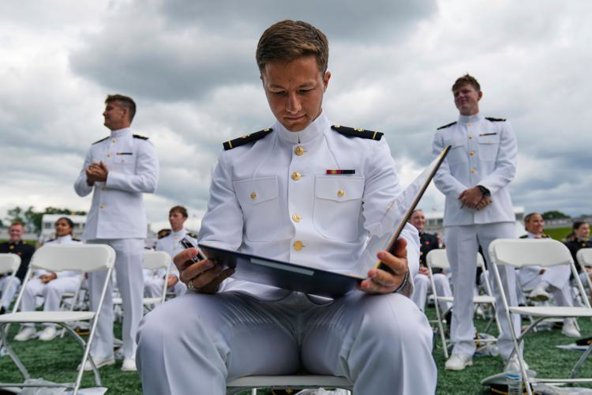
Vance Warns Navy Grads of Dangerous Era
Vance tells Navy graduates they face a dangerous era, vows end to open-ended U.S. missions.
Vice President Outlines New Strategic Direction
Vice President JD Vance addressed the graduating class of the United States Naval Academy on Friday, warning them of a "new and very dangerous era" as they prepare to take command in a world shaped by renewed threats from China, Russia, and other adversaries. The ceremony took place in Annapolis, Maryland, marking a pivotal moment for the newly commissioned officers stepping into active service.
“You will be leaders of men and women in our armed forces,” Vance stated, commending the graduates for their achievement while underscoring the grave responsibilities ahead. Speaking on behalf of the Trump administration, he emphasized a decisive shift in U.S. foreign policy: no more open-ended conflicts, no more undefined missions. “We’re turning to a strategy grounded in realism and protecting our core national interests,” he declared.
Vance said that while threats will not be ignored, U.S. military action will now be guided by discipline and specific, achievable goals. “When we send you to war, we do it with a very specific set of goals in mind,” he affirmed.
The Vice President outlined the global transformation since the Cold War, when America enjoyed near-total dominance in air, sea, space, and cyberspace. That era, he warned, is over. “Today we face serious threats in China, Russia, and other nations determined to beat us in every single domain,” Vance said, urging vigilance and preparation among the new officers.
Critique of Past Foreign Policy
Vance was sharply critical of past U.S. administrations, accusing them of prioritizing “nation-building and meddling in foreign countries’ affairs” over national defense and alliance maintenance. He said U.S. leaders wrongly assumed that global economic integration would foster peace, particularly with adversaries like the People’s Republic of China.
“We stopped making things, everything from cars to computers to the weapons of war,” Vance lamented, referring to America's diminished industrial capacity. He argued that a false belief in the universal adoption of liberal ideals led to complacency and strategic misjudgment.
He also criticized efforts to export democracy to the Middle East, describing them as “almost impossibly hard” and “unbelievably costly.” This misguided confidence, he said, diverted attention from the rise of true competitors.
“We must be, all of us, not just smarter,” Vance concluded, “but we’ve got to make sure that when we send our troops to war, we do it with the right tools.” He emphasized the administration’s focus on innovation, risk-taking within the Department of Defense, and a streamlined approach to weapons acquisition to meet the demands of 21st-century conflict.
As the graduates prepare to serve, Vance’s remarks signal a strategic pivot for the U.S. military—one marked by restraint, readiness, and renewed clarity of purpose. The administration’s vision reflects a return to hard power and a commitment to confronting global threats with precision and resolve.






